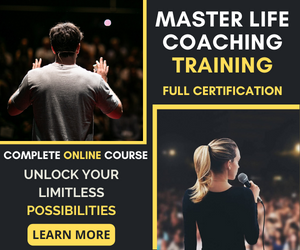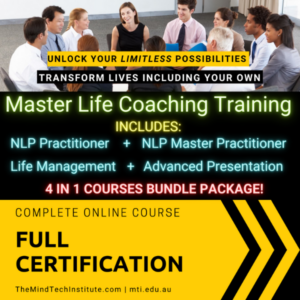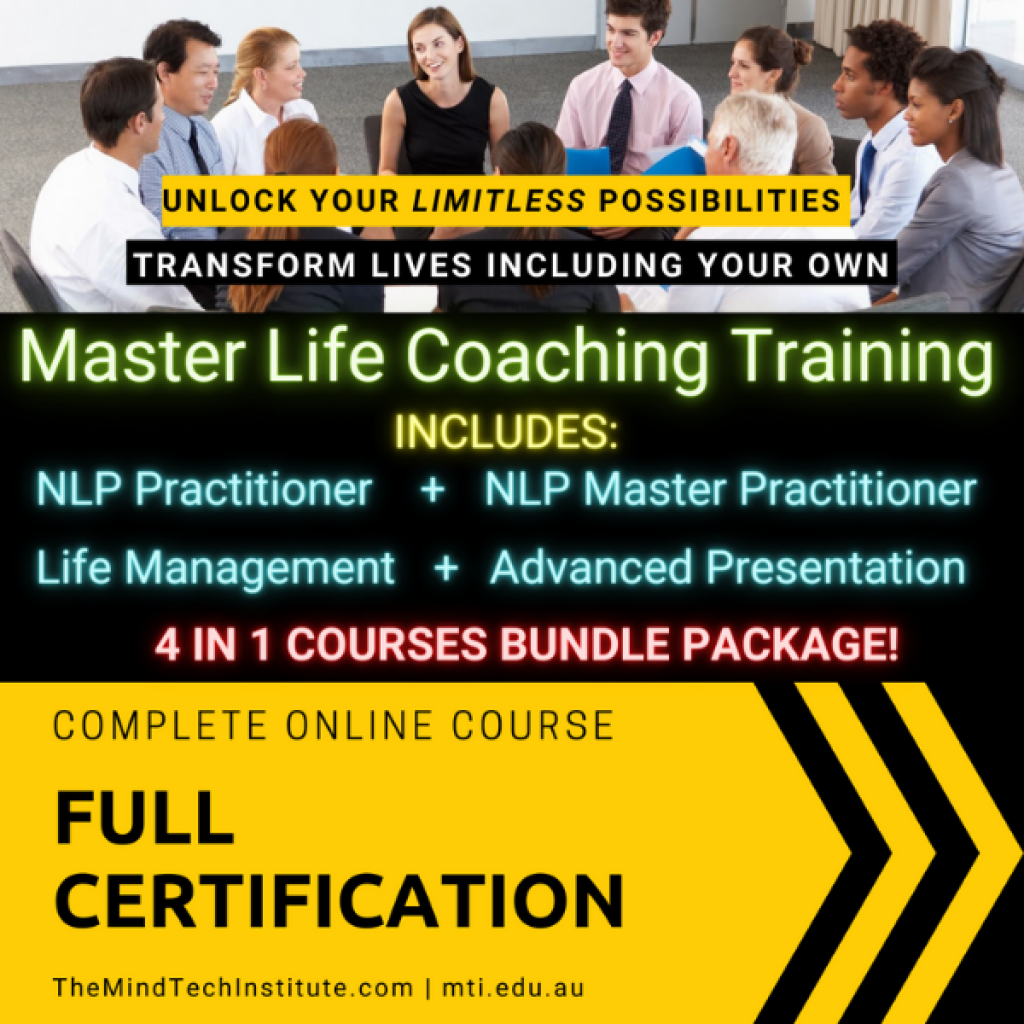
12 Benefits of Becoming a Qualified Life Coach
12 Benefits of Becoming a Qualified Life Coach
The MindTch Institute
12 Benefits of Becoming a Qualified Life Coach: Are you passionate about helping others achieve their goals, overcome obstacles, and live fulfilling lives? If so, a career as a qualified life coach might be the perfect fit for you. Becoming a life coach offers numerous benefits, both personally and professionally. In this article, we will explore the advantages of pursuing this rewarding career path and how it can positively impact your life and the lives of others.
In today’s fast-paced and complex world, many individuals seek guidance and support to navigate various aspects of their lives. Qualified life coaches play a vital role in empowering others to set meaningful goals, overcome challenges, and unlock their full potential. By becoming a life coach, you can make a profound impact on the lives of your clients while experiencing personal and professional growth.
Defining a Life Coach
A life coach is a trained professional who assists individuals in identifying and achieving their personal and professional goals. They provide guidance, motivation, and accountability to help their clients overcome obstacles and create positive change. Life coaches utilize a variety of tools and techniques to empower their clients, including goal setting, action planning, and mindset shifts.
Personal Growth and Development
One of the significant benefits of becoming a qualified life coach is the opportunity for personal growth and development. As you guide others on their journey, you will also embark on a path of self-discovery and self-improvement. Through continuous learning and reflection, you will gain valuable insights about yourself, your values, and your purpose. This self-awareness will not only enhance your coaching skills but also enrich your personal life.
Helping Others Reach Their Full Potential
As a life coach, you have the privilege of helping individuals overcome limitations, unlock their potential, and achieve their dreams. By providing support, encouragement, and accountability, you can assist clients in setting meaningful goals, clarifying their vision, and taking decisive actions. Witnessing their progress and witnessing the positive impact you have on their lives can be incredibly fulfilling and rewarding.
Flexibility and Autonomy
One of the appealing aspects of being a life coach is the flexibility and autonomy it offers. Unlike traditional 9-to-5 jobs, you have the freedom to set your own schedule and work from anywhere. This flexibility allows you to maintain a healthy work-life balance, pursue other passions, and spend quality time with your loved ones.
Lucrative Career Opportunities
In addition to personal fulfillment, a career as a qualified life coach can also be financially rewarding. With the growing demand for coaching services in various areas such as career, relationships, health, and personal development, there are ample opportunities to build a successful coaching practice. As your expertise and reputation grow, you can attract high-paying clients and create multiple income streams through workshops, speaking engagements, and online courses.
Making a Lasting Difference
Few things are as rewarding as making a lasting difference in someone’s life. As a qualified life coach, you have the power to inspire, motivate, and empower individuals to overcome challenges and create positive change. By equipping them with valuable skills and strategies, you can help them transform their lives and achieve long-term success. The impact you make on your clients’ lives will ripple outwards, positively influencing their families, communities, and beyond.
Expanding Your Network
Another advantage of being a life coach is the opportunity to expand your professional network. Through interactions with clients, colleagues, and fellow professionals, you can establish meaningful connections and collaborations. Networking opens doors to new opportunities, referrals, and partnerships, which can contribute to the growth and success of your coaching practice.
Enhanced Communication and Interpersonal Skills
Effective communication and interpersonal skills are vital in the field of life coaching. By engaging in active listening, asking powerful questions, and providing constructive feedback, you will sharpen these essential skills. The ability to connect deeply with others, empathize with their struggles, and facilitate their growth will not only benefit your clients but also enhance your personal relationships and interactions.
Continuous Learning and Professional Development
As a qualified life coach, the learning journey never ends. To stay at the forefront of your field and deliver the best possible results to your clients, continuous learning and professional development are essential. Through workshops, conferences, certifications, and ongoing education, you can expand your knowledge, refine your coaching techniques, and explore emerging trends in the coaching industry.
Building Confidence and Self-Esteem
Becoming a life coach requires a certain level of confidence and self-belief. As you help your clients build their confidence and overcome self-limiting beliefs, you will also strengthen your own sense of self-worth and belief in your abilities. Seeing the positive impact you have on others’ lives will reinforce your confidence, allowing you to take on new challenges and pursue your own goals with greater determination.
Contributing to Mental Health and Well-being
In today’s fast-paced society, mental health and well-being have become increasingly important. By becoming a qualified life coach, you can contribute to the well-being of individuals and communities. Your guidance and support can help individuals manage stress, improve their mental resilience, and cultivate healthy habits. Through your work, you have the potential to make a significant impact on the overall well-being of your clients.
Creating Work-Life Balance
One of the key advantages of being a life coach is the ability to create work-life balance. As you design your own schedule and choose your clients, you can ensure that your professional commitments align with your personal priorities. This balance allows you to pursue your passions, nurture your relationships, and prioritize self-care, leading to greater fulfillment and satisfaction.
Empowering Individuals and Communities
As a qualified life coach, you have the opportunity to empower individuals and communities. By guiding individuals to overcome challenges, embrace their strengths, and take positive action, you contribute to a culture of empowerment and personal growth. The ripple effects of your coaching can extend beyond individual clients, fostering positive change in families, organizations, and society as a whole.
Becoming a qualified life coach is a rewarding and fulfilling career choice that offers numerous benefits. From personal growth and development to making a lasting difference in the lives of others, the journey of a life coach is both meaningful and impactful. By combining your passion for helping others with the power of coaching, you can unlock your own potential while empowering individuals to live their best lives.
FAQs
1. How long does it take to become a qualified life coach?
The duration to become a qualified life coach here at The MindTech Institute varies depending on the individual commitment, and the training program (Life Coach, Master Life Coach training levels, or both). Typically, it can range from a month to several months or more.
2. Can I specialize in a specific area of life coaching?
Yes, here at The MindTech Institute many of our master life coaching graduates choose to specialize in areas such as career coaching, relationship coaching, health and wellness coaching, or personal development coaching. Specializing allows you to focus on specific client needs and tailor your coaching approach accordingly.
3. How do I attract clients as a life coach?
Attracting clients as a life coach involves a combination of marketing strategies such as building an online presence, networking, offering valuable content, and leveraging referrals. Consistency, authenticity, and showcasing your expertise are key to attracting your ideal clients.
4. Do I need certification to become a life coach?
While certification is not legally required to practice as a life coach, it can provide credibility and enhance your professional reputation. Many clients prefer to work with certified coaches as it ensures a certain level of training, knowledge and ethical standards. The MindTech Institute offers two levels of life coaching training: Life Coaching Training and Master Life Coaching Training, as well as both levels in one single package… CLICK HERE for more details.
5. What qualities make a successful life coach?
Successful life coaches possess excellent communication skills, empathy, active listening abilities, a passion for helping others, and a commitment to ongoing learning and self-improvement. Flexibility, adaptability, and a positive mindset are also important qualities for navigating the coaching journey. You’ll learn everything to become an excellent Life Coach at The MindTech Institute’s Master Life Coaching Training Program.




